26 - 29 september 2023
About
The JRC Week on Composite Indicators and Scoreboards is an event during which over 100 practitioners in a wide range of fields come together to learn about indicator frameworks that summarise complex and multidimensional concepts, such as innovation, sustainability, poverty or inequality.
Over the course of four half-days, participants will engage in a training session and in a Community of Practice. During the Training, participants will learn about quality-controlled methods for developing and analysing indicator frameworks and the efforts needed in terms of data collection, analysis and visualisation. The training will also offer lessons learnt from the JRC assessments of more than 100 well-known composite indicators and scoreboards.
The Community of Practice on Composite Indicators and Scoreboards will offer an ideal opportunity to share challenges in building multidimensional indicator frameworks, create new collaborations and stay up to date with the latest developments on composite indicators. We have been having a great line up of guests and inspiring conversations – and this year is no exception. The 2023 Community of Practice will be about celebrating the European Year of Skills. We will look at how composite indicators and scoreboards are helping to measure the skills needed to make the green and digital transitions happen.
Agenda
The JRC Week on Composite Indicators and Scoreboards will convene online from 26 to 29 September 2023, with sessions starting at 14:30 CEST each day.
Training day 1
14:30 Opening
| Michaela Saisana, European Commission, Joint Research Centre |
14:55 Statistics Refresher I
| Elizabeth Casabianca, European Commission, Joint Research Centre |
15:20 Step 1: Conceptual Framework
| Laura Di Bella, European Commission, Joint Research Centre |
15:45 Step 2: Selection of Indicators
| Francesco Panella & Giulio Caperna, European Commission, Joint Research Centre |
16:10 Coffee Break
16:25 Step 3: Data treatment
| Giulio Caperna & Oscar Smallenbroek, European Commission, Joint Research Centre |
17:00 Step 4: Normalisation
| Marcos Dominguez-Torreiro, European Commission, Joint Research Centre |
17:20 Q&A
| COIN team |
17:40 End of day 1
Training day 2
14:30 Statistics Refresher II
| Jaime Lagüera, European Commission, Joint Research Centre |
14:45 Step 5: Weighting
| Matija Kovacic, European Commission, Joint Research Centre |
15:15 Step 6: Aggregation
| Giulio Caperna, European Commission, Joint Research Centre |
15:40 Step 7: Statistical Coherence
| Eleni Papadimitriou, European Commission, Joint Research Centre |
16:10 Coffee Break
16:25 The Excel COIN tool
| Giulio Caperna, European Commission, Joint Research Centre |
17:20 Q&A
| COIN team |
17:40 End of day 2
Training day 3
14:30 Step 8: Quality control & Robustness
| William Becker, European Commission, Joint Research Centre external expert |
15:00 Step 9: Data sensemaking
| Ana Rita Neves, European Commission, Joint Research Centre |
15:20 Step 10: Data visualisation & Communication
| Carlos Moura and Valentina Alberti, European Commission, Joint Research Centre |
16:10 Coffee Break
16:25 The COINr package
| William Becker, European Commission, Joint Research Centre external expert |
17:20 Q&A
| COIN team |
17:40 End of training
Community of Practice
14:30 Measuring skills with composite indicators and scoreboards
Moderation: Elizabeth Casabianca Ilias Livanos, Collegamento European Skills Index , CEDEFOP Anthony Fakhoury, Global Knowledge Index, UNDP Anna Horvath, Mobility Scoreboard, EACEA Michael Bratt, Global Talent Competitiveness Index, D&L Partners |
16:10 Coffee Break
16:20 Roundtable: What are the skills needed to build composite indicators?
Moderation: Ana Rita Neves and Eleni Papadimitriou Diego Begnozzi, Global Attractiveness Index, The European House - Ambrosetti Jolanta Reingarde, Gender Equality Index, EIGE Yanchun Zhang, Human Development Index, UNDP Youlia Lozanova, ICT Regulatory Tracker, ITU |
17:40 End of the Community of Practice meeting
Meet the team
 | Michaela Saisana |
Michaela Saisana is Head of the Science for Modelling, Monitoring and Evaluation Unit at the European Commission's Joint Research Centre in Italy. She has been working in the JRC since 1998, where she obtained a prize as “best young scientist of the year” in 2004 and together with her team the “JRC policy impact award” for the Social Scoreboard of the European Pillar of Social Rights in 2018. Scientist and engineer with specialization on process optimization and spatial statistics, she is actively involved in promoting a sound development and responsible use of performance monitoring tools.These monitoring tools feed into EU policy formulation and legislation in a wide range of fields from social rights and fairness to innovation and competitiveness, from enterprises and firms to state aid, from employment to culture and creativity, from cohesion to sustainable development. She collaborates, by auditing performance indices, with over 150 international organizations and world-class universities, including the United Nations, Transparency International, Oxfam, the World Economic Forum, INSEAD, the World Intellectual Property Organization, Yale University, Columbia University, and Harvard University. Michaela graduated in 1998 from the National Technical University of Athens with a degree in Chemical Engineering (receiving the Technical Chamber of Greece Award in Chemical Engineering) and went on to complete her PhD in Chemical Engineering with focus on air quality and spatial statistics. | |
 | Marcos Domínguez-Torreiro |
Marcos Domínguez-Torreiro is Head of the Competence Centre on Composite Indicators and Scoreboards at the European Commission’s Joint Research Centre. He is specialised in policy oriented research, drawing heavily on applied statistics and econometrics. After his undergraduate studies in Economics and Business Administration, he completed his doctoral thesis in Applied Economics at the University of Vigo, Spain. His career spans academia, private sector and government. He has contributed to several books, book chapters, academic journal articles and science for policy reports in the fields of composite indicators, environmental and natural resource economics, institutional economics and multidimensional inequalities. | |
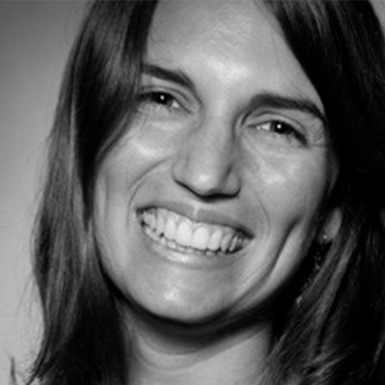 | Ana Rita Neves |
Ana Rita Neves currently works at the European Commission’s Joint Research Centre – Competence Centre on Composite Indicators and Scoreboards, where she has been part of the team developing the Composite Indicators & Scoreboards Explorer and the Asia-Europe Meeting sustainable connectivity index. Prior to joining the European Commission, Ana worked for six years at Climate Alliance, an international network of cities dedicated to climate action. At Climate Alliance, she was coordinating the development of the energy and climate reporting framework for over 7,000 cities engaged in the Covenant of Mayors initiative and involved in policy and advocacy activities linked to the international climate process. She was also an external expert evaluator of Horizon 2020, the biggest European Union's research and innovation programme. Ana has worked in research and international organisations for over 15 years at the intersection between science and policy. She holds a Ph.D. in Sustainable Energy Systems from the MIT-Portugal Programme, a Masters in Urban and Environmental Planning and a degree in Environmental Engineering. | |
 | Carlos Moura |
Carlos Moura currently works at the European Commission’s Joint Research Centre – Competence Centre on Composite Indicators and Scoreboards, where he has been part of the team developing sevreal visualization platforms as the Cultural and Creative Cities Monitor, the Social Scoreboard and the ASEM Sustainable Connectivity Portal. Prior to joining the European Commission, Carlos worked in the portuguese fisheries administration. At the fisheries administration he was responsible for managing the portuguese statistical system relating to fisheries. He develop several visual tools for controlling the fisheries and the portuguese quotas and automated the data collection procedures | |
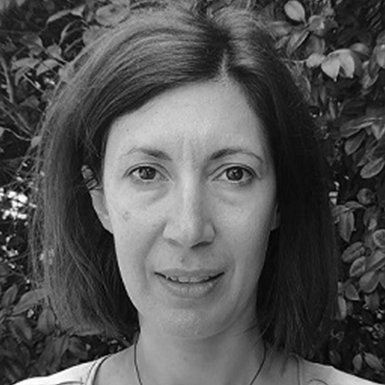 | Eleni Papadimitriou |
Eleni Papadimitriou works at the Competence Centre on Composite Indicators and Scoreboards (COIN) at the Joint Research Centre (JRC) of the European Commission. She is part of the team developing the Regional Gender Equality monitor, a monitoring tool of female disadvantage and achievement at regional EU level. Her other work interests include sustainable development, indicator frameworks and composite indicators. Prior to joining COIN, Eleni worked in the Climate Risk Management Unit of the JRC developing an index for climate resilient development and studying sustainable development indicators. Before that, in the Global Security and Crisis Management Unit, where she assisted the research on anti-fraud techniques in customs data. Her previous work experience includes also the private sector where she has a long-term experience as statistician and market research analyst. Eleni has studied Mathematics in the National Kapodestrian University of Athens and Statistics in the Athens University of Economics and Business. | |
 | Elizabeth Casabianca |
Elizabeth Casabianca is a Socio-Economic Analyst at the Joint Research Centre (JRC) of the European Commission. Her main interests lay in the field of applied microeconomics and microeconometrics, international economics, inequality and poverty. She particularly looks to carry our research with specific policy implications. Prior to joining the JRC, Elizabeth worked as an applied economist in a research and advisory company based in Bologna, where she was mainly involved in analysing the implications of economic policies on income distribution. Prior to that, she held a post-doc position at the Polytechnic University of Marche. She has also collaborated with the Trade, Gender and Development Section of UNCTAD, particularly on capacity building activities. Elizabeth has teaching experience at university level and she regularly presents her research at international conferences. | |
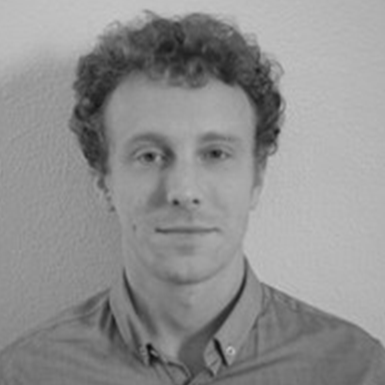 | Francesco Panella |
Francesco Panella currently works at the European Commission's Joint Research Centre, supporting research and activities in the context of cultural and creative cities. He holds an MA in Culture, Policy and Management from City University in London and a BA in Disciplines of the Arts, Music and Entertainment from Università di Bologna. | |
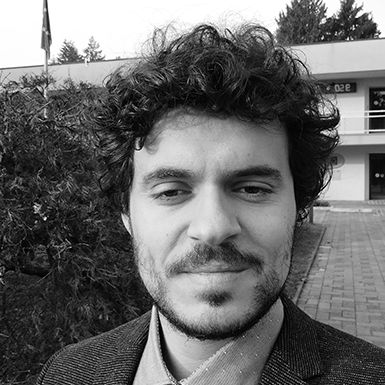 | Giulio Caperna |
Giulio Caperna is a researcher and statistician at the European Commission’s Joint Research Centre in Ispra, Italy. Before joining COIN, Giulio worked at the University of Padua as Post-Doc researcher where he taught statistics and construction of composite indicators. Before taking his PhD in Statistical Science at the University of Padua, he worked as data-manager and data-analyst in a medical department in Rome. Giulio studied Statistical Science and Demography at the “Sapienza” University of Rome. His main research interests include the methodology of composite indicators, as well as its use for the description of complex concepts such as civic participation and well-being. | |
 | Jaime Lagüera González |
Jaime Lagüera González is a research statistician at the European Commission, Joint Research Centre (JRC). Before joining the Competence Centre on Composite Indicators and Scoreboards (COIN), he worked at the European Central Bank (ECB) and in other areas of the JRC, where he collaborated on topics like data quality, data visualisation and text mining analysis. Jaime holds a Bachelor degree in Economics as well as two Master degrees, one in Econometrics and Operation Research and the other in Big Data and Business Analytics. His main research interest is the use of non-conventional data related to different topics like economics and composite indicators | |
 | Laura Di Bella |
Laura Di Bella currently works at the Competence Centre on Composite Indicators and Scoreboards (COIN) at the Joint Research Centre (JRC) of the European Commission, which she joined in October 2022. She is part of a team providing analytical support in the Small and Medium Enterprises (SMEs) policy area. Her main focus since she joined has been developing a new composite indicator monitoring the Twin Transition of SMEs across the EU. Prior to joining the JRC she worked for many years as a social researcher for the UK Government, managing small teams and delivering research and analysis for policy makers across different departments and policy areas (including justice, education, democracy, and housing). During this time she developed an expertise in mixed-methods approaches and multidisciplinary research and analysis. Her academic background is in Social Psychology. | |

| Matija Kovacic |
Matija Kovacic works at the Competence Centre on Composite Indicators and Scoreboards (COIN) within the Monitoring, Indicators and Impact Evaluation Unit at the Joint Research Centre (JRC) of the European Commission. He is an empirical economist mainly engaged in the analysis of inequality, fairness, and determinants of individual behavior. In addition, his activities also include the methodology of composite indicators and their empirical application. Matija holds a PhD in Economics and Doctor Europaeus in Economics from the Ca’ Foscari University of Venice, a two-years master degree from the University of Bologna and a bachelor degree from the University of Zagreb. Before joining COIN, Matija worked at the Ca’ Foscari University of Venice and University of Padua as a post-doctoral research fellow and lecturer. His other research interests include instability, climate change and conflict, and the analysis of non - economic and cultural determinants of individual preferences and decision making. | |
 | Oscar Smallenbroek |
Oscar Smallenbroek is currently working in CC-COIN auditing composite indicators and involved in the INNOVA project, where he works on a composite indicator called the Innovation Output Indicator and does research on the state of innovation in the EU. After having attained a PhD in Sociology from the European University Institute in 2020 he focused on measuring social stratification and personal value change over the life-course. His work has been published in the Journal of Positive Psychology, Sociological Methods & Research and Research in Social Stratification and Mobility. | |
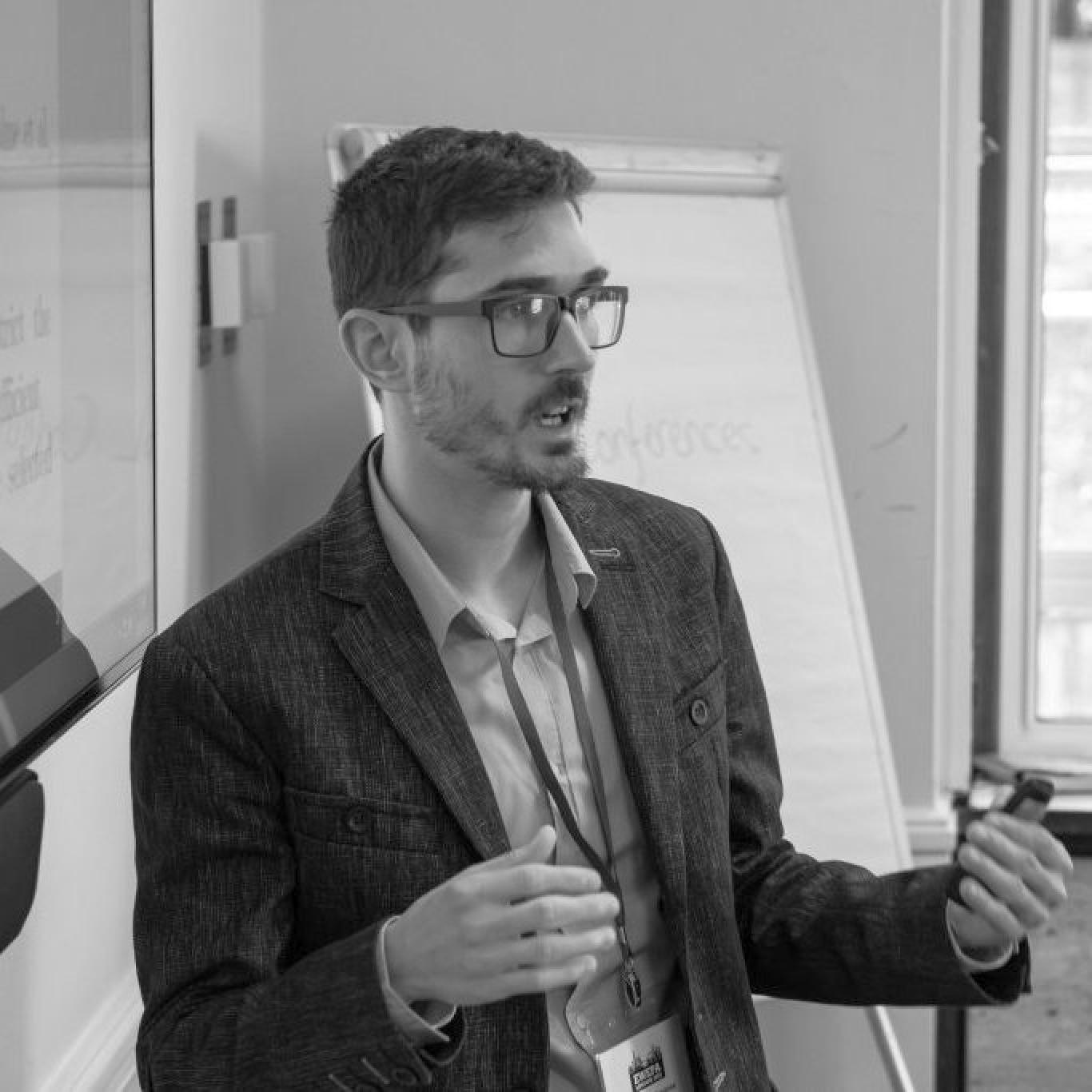 | Panagiotis Ravanos |
Panagiotis Ravanos is a policy analyst at the Competence Centre on Composite Indicators and Scoreboards (COIN) of the European Commission’s Joint Research Centre (JRC). His research is related to performance evaluation, efficiency measurement, Data Envelopment Analysis (DEA), and the methodology and empirical applications of DEA to the development of composite indicators. He holds a PhD in Economics from the Department of Economics at the University of Macedonia, Thessaloniki, Greece. He has received his BA and MA in Economics from the Department of Economics at the University of Macedonia, Thessaloniki, Greece. Prior to joining COIN, Panagiotis had worked in the Centre for the development of Vocational Education and Training (CEDEFOP), as a teaching and research assistant in the University of Macedonia, and as a research analyst in the private sector. His other research interests include the effect of decision maker preferences in performance assessment, the analysis of judicial performance, as well as aspects related to employment precariousness and skills shortages. | |
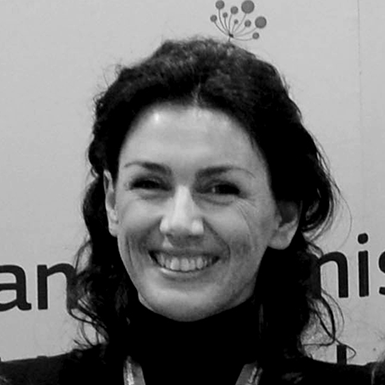 | Valentina Alberti |
Valentina Alberti is a researcher at the European Commission, Joint Research Centre (JRC). Currently she is dealing with culture and creativity in European cities, and her research interests includes mainly regional development and urban renewal. Valentina hold a PhD in Regional and Urban Planning and a Master degree in Architecture at Sapienza, University of Rome. Passionate for visual communication, she explores communication techniques to simplify complex topics for non-experts. | |
 | William Becker |
Independent consultant, former Researcher at European Commission’s Joint Research Centre William Becker is an accomplished data scientist with extensive experience in international policy making. Originally from a technical background, he received a PhD in mechanical engineering, statistics and machine learning from the University of Sheffield in 2011. For the last nine years he has worked at the European Commission’s Joint Research Centre, supporting high-level international policy making with innovative data and policy analysis; and developing composite indicators and scoreboards for monitoring global trends. In parallel, he has built a strong cross-disciplinary academic track record, with a wide range of high-impact publications, and keynote speeches in international conferences. Applications of his work include sustainable development, international connectivity, policy/performance monitoring and impact assessment, environmental science, engineering and economics | |
Invited speakers
 | Anna Horvath |
Anna Horvath is a senior education policy analyst at the Education and Culture Executive Agency (EACEA) in Brussels. She has coordinated and contributed to various reports of the Eurydice Network, which intend to facilitate European cooperation in education and the work of policymakers at both national and European levels. Anna has been working on comparative reports on European education systems in both school and higher education, and her main interests include learning mobility, the social dimension of higher education and educational inequalities. Anna has coordinated the development and updating of the European Commission's Mobility Scoreboard in higher education, which provides the framework for monitoring progress made by European countries in creating a positive environment supporting learner mobility. | |
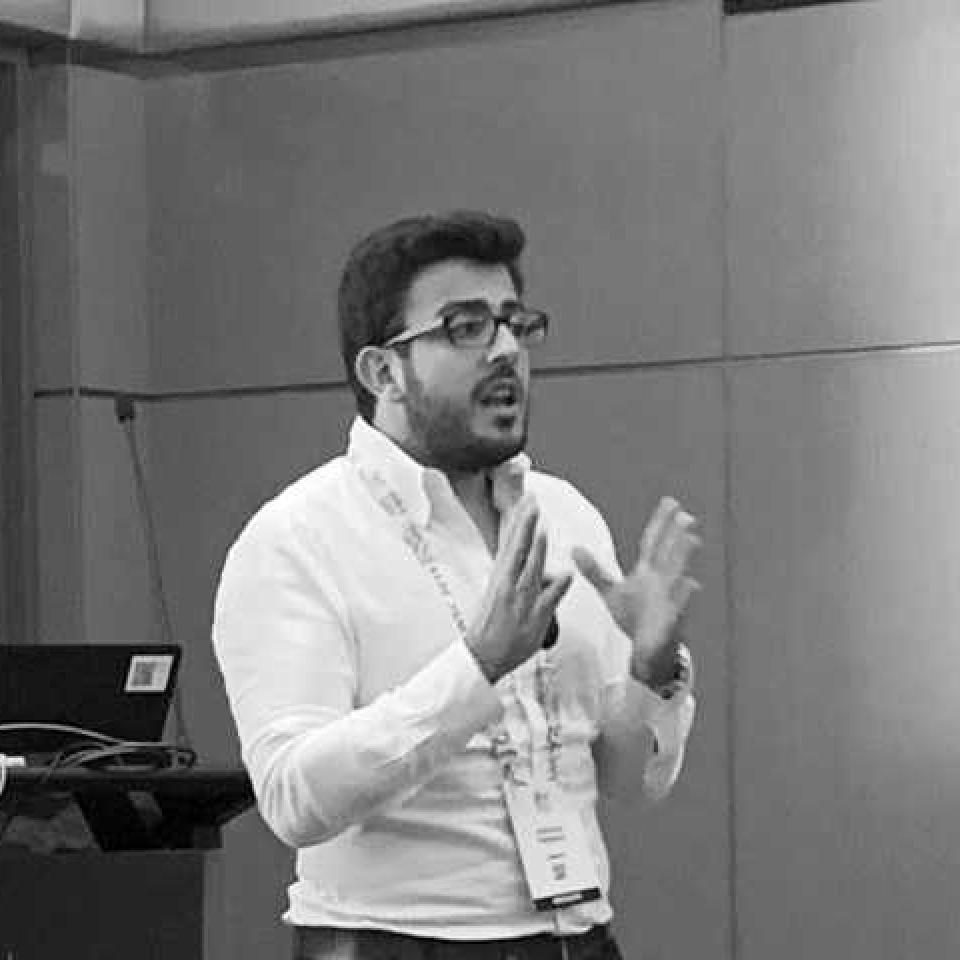 | Anthony Fakhoury |
Anthony Fakhoury is a Project and Research Analyst currently working with UNDP's Knowledge Project. With over seven years of experience working with UNDP's Regional Bureau for Arab States, Anthony has conducted extensive economic and statistical research on topics related to knowledge societies, education, technology, and future skills. He plays a key role in spearheading the Regional Skills Initiative, which focuses on providing future-proof job opportunities by upskilling and reskilling citizens in the Arab States region. In addition to his work with the United Nations, Anthony also serves as a university lecturer for undergraduate and graduate economics courses at the Lebanese American University. He holds a BS in Economics and an MA in Applied Economics and has authored several publications. | |
 | Diego Begnozzi |
Diego Begnozzi is a consultant at The European House - Ambrosetti in the Business & Policy Impact area. He manages projects aimed at measuring - and thus improving - the impact of companies on territories, supply chains and stakeholders, developing projects for the assessment of impacts of companies, sectors, public and private entities. Moreover, Diego develops estimation methodologies using mathematical, statistical and econometric tools and is responsible for the unit focused on building composite indices. | |
 | Jolanta Reingarde |
Jolanta Reingarde PhD leads a programme on research and statistics at the European Institute for Gender Equality (EIGE) - an EU agency based in Vilnius, Lithuania- since 2010. The development of the Gender Equality Index and annual progress reports on gender equality in selected policy areas in the EU are two major research areas of the programme. She studied Sociology at Vytautas Magnus University in Kaunas (Lithuania), followed by a Ph.D on violence against women. Jolanta has wide experience researching gender equality policies in the EU and globally, measurements of gender equality, gender equality and economy, work-life balance. | |
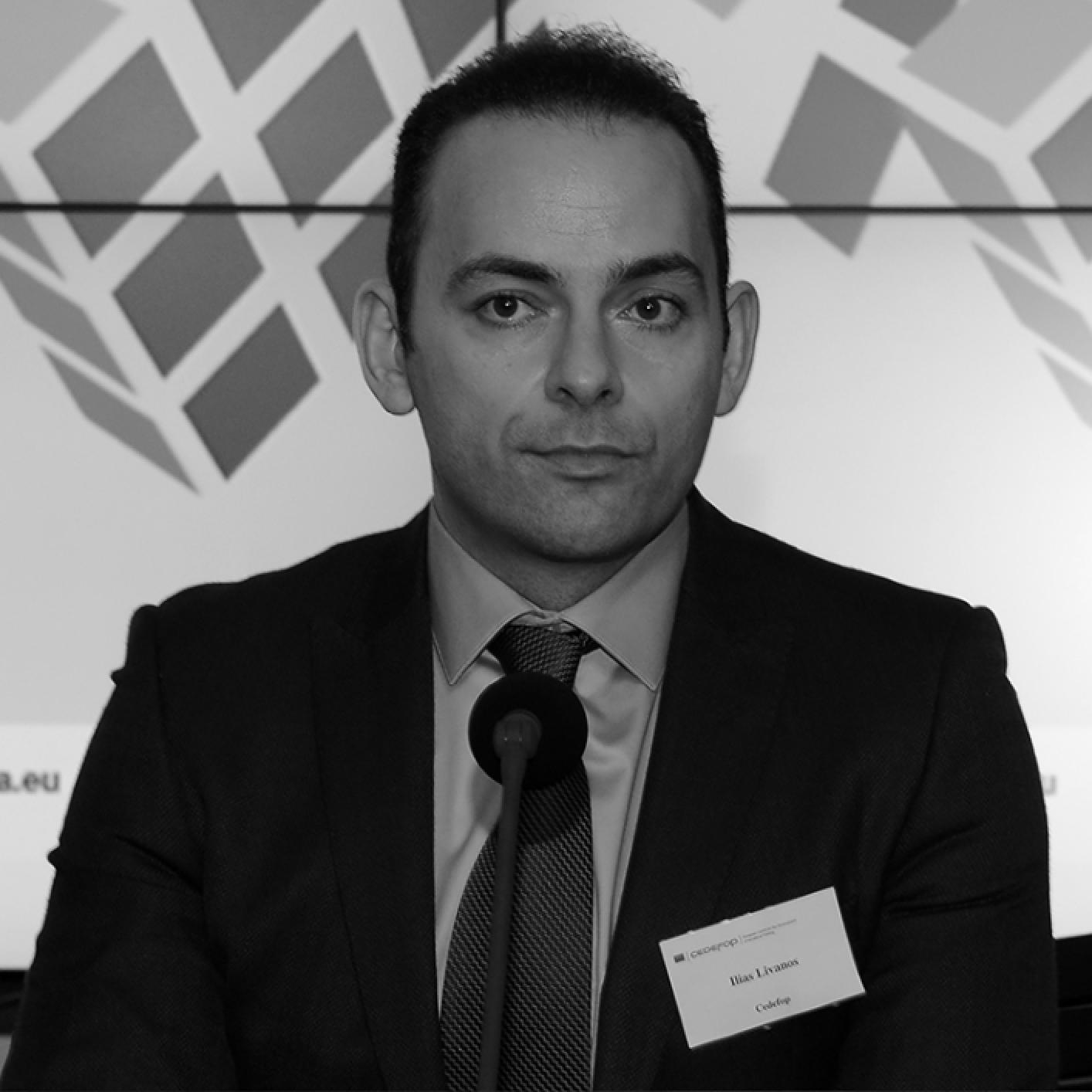 | Ilias Livanos |
Ilias Livanos is a Cedefop expert at the Department for VET and Skills. Ilias, amongst his other duties at Cedefop, is the leader of the Skills forecast and the European skills index. He is an economist by training, with a PhD in employment research from the University of Warwick, where he worked for several years prior to joining Cedefop. His expertise is in labour economics, education economics, and industrial relations. Ilias has published articles in various top-ranking journals. | |
 | Michael Bratt |
Michael Bratt leads the analytical work of the Global Talent Competitiveness Index by being responsible for the calculation and analysis of the country and city rankings. Prior to his current role he was Consultant and Associate Economic Affairs Officer at United Nations Conference on Trade and Development (UNCTAD), working primarily on issues of trade and development related to least-developed countries and landlocked developing countries. Other past work experience includes consulting for the World Trade Organization and working as an analyst at the Swedish National Board of Trade, CUTS International, and Mintel International. He holds a PhD in Economics from the University of Geneva and a Master of International Law and Economics from the World Trade Institute (University of Bern). | |
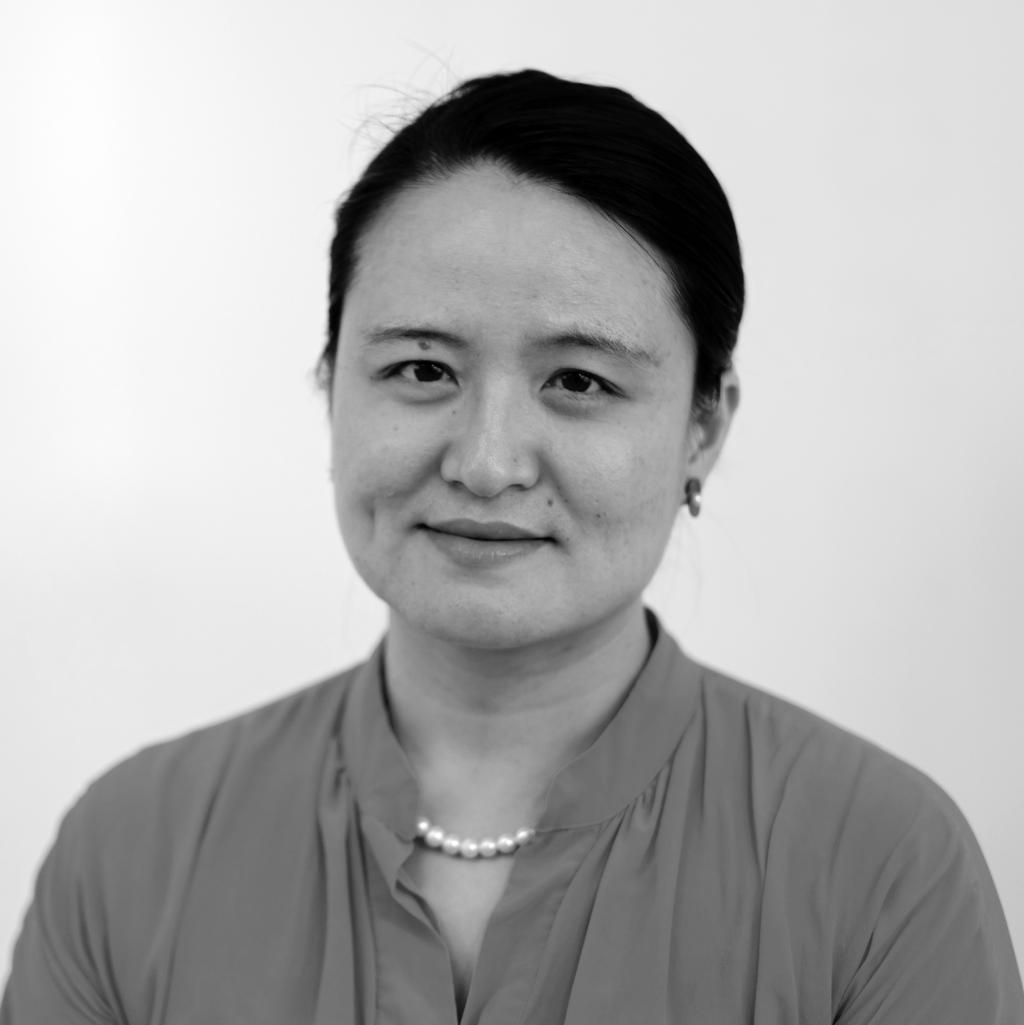 | Yanchun Zhang |
Ms. Yanchun Zhang is Chief Statistician of United Nations Development Programme (UNDP) and leads the production of UNDP’s Human Development Index and other composite indices. She has twenty years of quantitative research experience on a wide range of economic and sustainable development topics, and published articles in refereed journals. Prior to HDRO, she also worked at the United Nations Conference on Trade and Development, the World Bank's Development Research Group and in academia. She holds Ph.D. and M.A. degrees in Economics from University of Virginia, U.S.A, and a B.A. degree in Economics with honors from Shanghai Fudan University, China. | |
 | Youlia Lozanova |
Youlia Lozanova has been working at ITU for over 15 years. She has been involved in various areas of policy and regulation for the ICT sector and digital markets working with policy makers, regulators, academia and the broader regulatory community. Youlia is leading ITU’s research and analysis on collaborative regulation for the digital transformation. She is also the lead on policy and regulatory metrics, namely the ICT Regulatory Tracker and the G5 benchmark for fifth generation collaborative regulation, which allow to scope the maturity of regulatory frameworks and provide a roadmap to regulatory excellence and designing flexible, resilient and sustainable solutions for policy reform. | |
Practical information
Registration
Registration is now closed. You can follow the event in webstreaming.
Digital Platform
The event will be hosted on WebEx. The link will be sent only to registered participants.
Please note that the event will be recorded and that the video will be made public for information purposes related to the activities or projects of the European institutions and the European Union.
Participants who do not agree to the filming and use of their image have the opportunity to disable their cameras and use the chat or Q&A functionality for interactions instead.
Questions can be posed in Sli.do. Please visit www.slido.com and enter the code #JRCWeek2023
Contact
Costs
There are no registrations fees.
Language
The JRC Week will be held in English.
Social media
Downloads
Training Day 1
Opening, Michaela Saisana
Statistics Refresher I, Elizabeth Casabianca
Step 1. Conceptual Framework, Laura Di Bella
Step 2. Selection of Indicators, Francesco Panella & Giulio Caperna
Step 3. Data Treatment, Giulio Caperna & Oscar Smallenbroek
Step 4. Normalisation, Marcos Dominguez-Torreiro
Training Day 2
Statistics Refresher II, Jaime Lagüera
Step 5. Weighting, Matija Kovacic
Step 6. Aggregation, Giulio Caperna
Step 7. Statistical Coherence, Eleni Papadimitriou
The Excel COIN tool, Giulio Caperna
Training Day 3
Step 8. Quality control & Robustness, William Becker
Step 9. Data sensemaking, Ana Rita Neves
Step 10. Visualisation, Carlos Moura
Step 10. Communication, Valentina Alberti
The COINr package, William Becker
Community of Practice
Global Knowledge Index, Anthony Fakhoury,
European Skills Index, Ilias Livanos
Mobility Scoreboard, Anna Horvath
Global Talent Competitiveness Index, Michael Bratt
Videos
Slido Q&A
Please find below the list of questions and answers from the Training sessions on Slido
More editions
2025 - JRC Week on Composite Indicators and Scoreboards
2021 - JRC Week on Composite Indicators and Scoreboards
2019 - JRC Week on Composite Indicators and Scoreboards
2018 - JRC Week on Composite Indicators and Scoreboards
2017 - JRC Week on Composite Indicators and Scoreboards
| Originally Published | Last Updated | 06 Mar 2023 | 22 Jul 2025 |
| Knowledge service | Metadata | Composite Indicators |
Share this page
